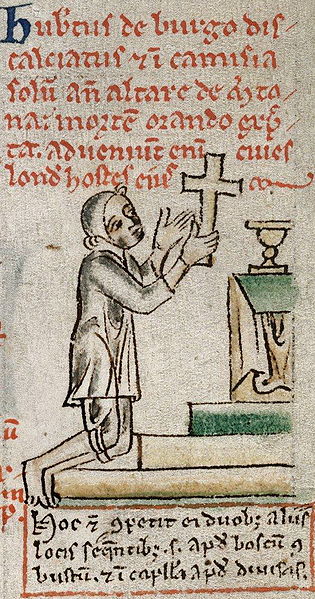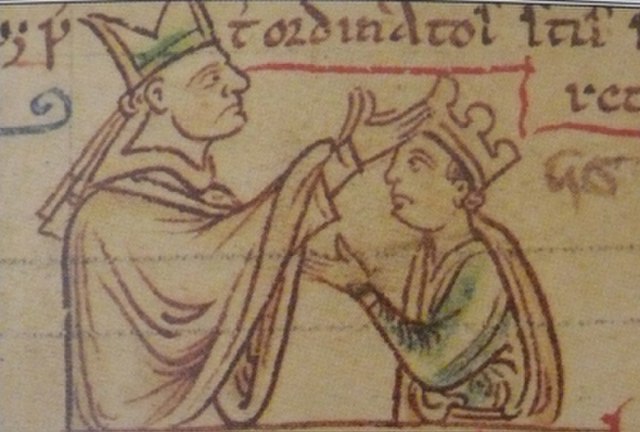Hubert de Burgh, Earl of Kent
Hubert de Burgh, Earl of Kent was an English nobleman who served as Chief Justiciar of England (1215–1232) and Justiciar of Ireland (1232) during the reigns of King John and his son and successor King Henry III and, as Regent of England (1219–1227) during Henry's minority, was one of the most influential and powerful men in English politics in the thirteenth century.
Hubert de Burgh seeking sanctuary in 1234, by Matthew Paris, from his Historia Anglorum
Prince Arthur and Hubert by William Frederick Yeames, 1882. Manchester Art Gallery
The remains of de Burgh's Hadleigh Castle near Southend in Essex
Henry III, also known as Henry of Winchester, was King of England, Lord of Ireland, and Duke of Aquitaine from 1216 until his death in 1272. The son of King John and Isabella of Angoulême, Henry assumed the throne when he was only nine in the middle of the First Barons' War. Cardinal Guala Bicchieri declared the war against the rebel barons to be a religious crusade and Henry's forces, led by William Marshal, defeated the rebels at the battles of Lincoln and Sandwich in 1217. Henry promised to abide by Great Charter of 1225, a later version of the 1215 Magna Carta, which limited royal power and protected the rights of the major barons. His early rule was dominated first by Hubert de Burgh and then Peter des Roches, who re-established royal authority after the war. In 1230, the King attempted to reconquer the provinces of France that had once belonged to his father, but the invasion was a debacle. A revolt led by William Marshal's son Richard broke out in 1232, ending in a peace settlement negotiated by the Church.

Henry III depicted in a manuscript from the 13th century
The Battle of Lincoln in 1217, showing the death of Thomas, Count of Perche (left), by Matthew Paris
The Battle of Sandwich in 1217, showing the capture of the French flagship and the execution of Eustace the Monk (r) and the support of the English bishops (l), by Matthew Paris
Matthew Paris's depiction of the second coronation of Henry in 1220







